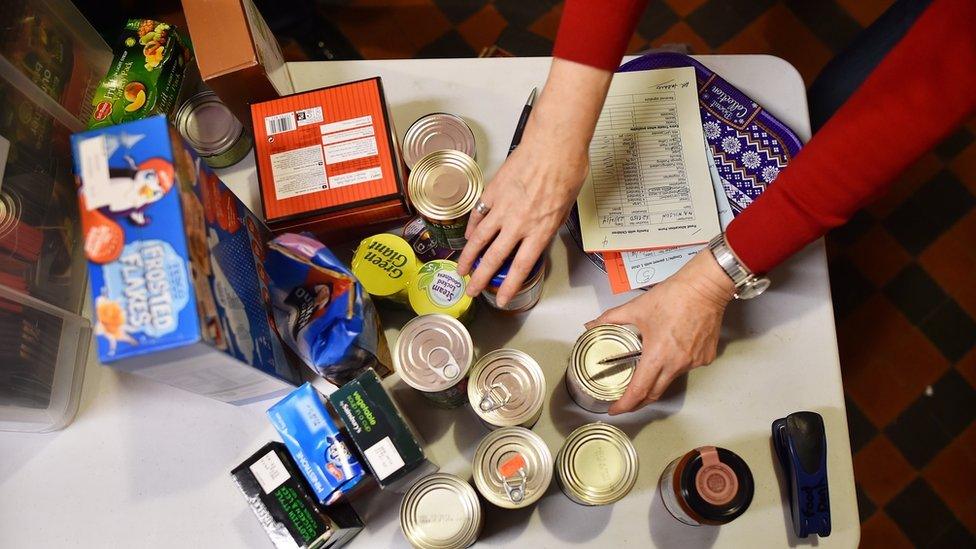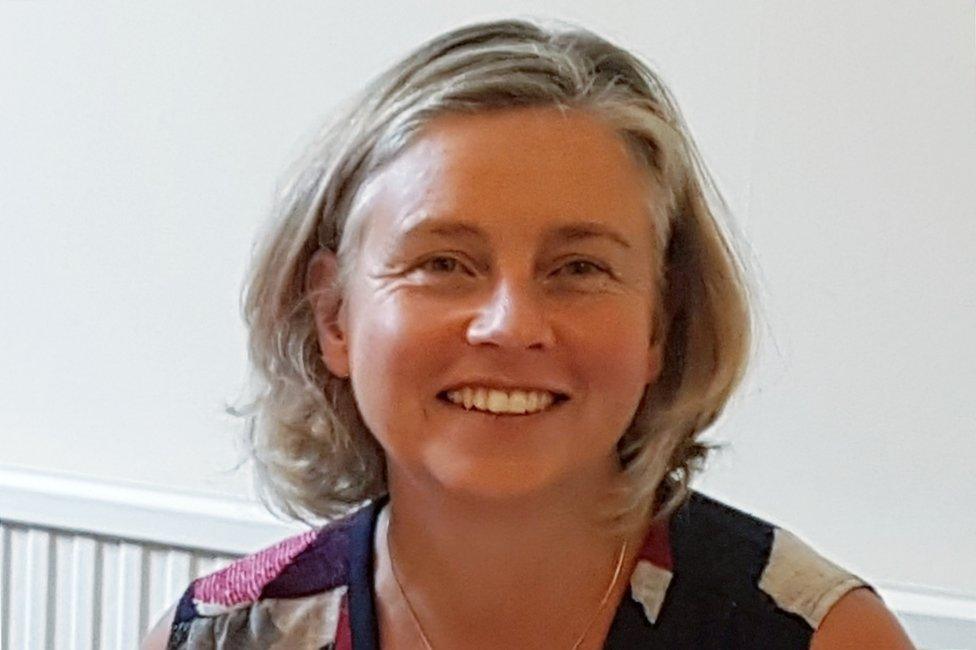Welfare funding stopped by at least 20 English councils
- Published

A welfare scheme offering emergency financial support to England's poorest families is no longer available in a host of council areas, research shows.
Church Action on Poverty said the amount of Local Welfare Assistance cash has slumped from £172m to £46m since 2013.
It has ended completely in more than 20 of 153 areas surveyed.
Only two councils - Islington and North Tyneside - have increased funding.
Similar research by the Children's Society claims the number of people getting crisis support has fallen 75 per cent since 2013.
It estimates more than a quarter of almost 100,000 applications turned down last year were from families with children.

Many councils now direct people to alternative areas of support such as benefits advice, local charities and foodbanks
Local Welfare Assistance Schemes (LWAS) replaced the national Social Fund in 2013, with responsibility for distributing cash passing to English local councils.
The government stopped providing a ring-fenced grant for the schemes in 2015.
Both Scotland and Wales still run national social funds, with the Scottish Welfare Fund (SWF) distributing grants of almost £165m between April 2013 and March 2018.
Niall Cooper, director of Church Action on Poverty, said: "A compassionate society ensures people can access help in times of crisis.
"That's what the Social Fund was there for; to help people stay afloat in turbulent times.
"The lifeline has been allowed to disintegrate, meaning people in sudden need are swept deeper into poverty."

Janie Moor said support now prioritises "keeping a roof over someone's head"
Local welfare schemes are aimed at people in short-term crisis - offering support at times such as a sudden bereavement, a broken boiler, or having to move out of a rented home.
Devon County Council passed £1.4m on to its eight district authorities in 2013-14, but by 2016 five had cut their support.
Among them was South Hams District Council, which said it closed the scheme when funding ran out.
Janie Moor, the chief officer of Citizens Advice for South Hams, said the focus was now "keeping a roof over someone's head" through alternative funding schemes such as Discretionary Housing Payments and council tax payments.
One CAB advisor with 15 years of experience in South Hams said losing the LWAS has caused "a lot of problems".
She added: "A lump sum was allocated at the beginning of the [financial] year so we knew that if we made an application for a client in April or May we had a good chance of getting something, but if it was in February the money would have run out."
"You were always expected to get second-hand stuff, but it was better than nothing."
In response, senior councillor Hilary Bastone said: "We continue to do our best to help wherever we can, within our limited budget."

Charity research
Church Action on Poverty questioned 163 councils in 2018, receiving responses from 153.
It found more than 20 English councils had closed their funds, including Bexley, Bournemouth, Haringey, Hillingdon, North East Lincolnshire, Stoke-on-Trent, Oxfordshire, Nottinghamshire, North Lincolnshire and Nottingham.
In Greenwich, the Local Democracy Reporting Service revealed a plan to scrap the scheme was reversed last month, external when councillors decided to use higher-than-expected business rate income to maintain the fund.
Only Islington and North Tyneside are believed to have increased the level of funding since 2013.

Church Action on Poverty is now calling on councils to maintain or strengthen their crisis support, while also asking for new laws to force authorities to provide grants, loans and in-kind help when people need it.
In Lincolnshire, where LWAS support ran dry in December 2016, the county council said support had continued in other ways.
Sue Woolley, executive councillor for community engagement, said: "This year, as well as providing £278,000 in core funding for the Citizen's Advice service, we have provided one-off additional funding of £53,000 to provide additional support relating to welfare reform, including Universal Credit."
But Simon Hoare, chief executive of Lincoln's Acts Trust, a charity that runs a furniture project and offers financial advice, said even though charities and local groups tried to meet the basic needs such as food and furniture there were still gaps in support.
He said: "The issue hasn't gone away. People don't suddenly no longer need crisis support."
Local Government Minister Rishi Sunak MP said: "Local authorities are democratically-elected, independent bodies that are responsible for setting their own budgets and managing their resources in line with local priorities, which can include Local Welfare Provision Schemes."